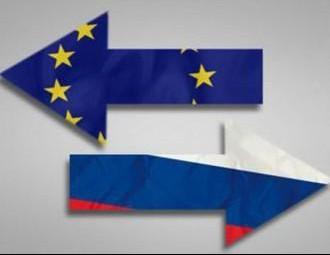Andrei Yahorau: We should avert the worst scenario that can be unfolded in Belarus

After the Vilnius Summit of the Eastern Partnership Belarus can be found on the side of the European processes.
And the attention of the EU can switch to the favorites of the Eastern Partnership, leaving outsiders out of it. “Civil society should do everything possible to avert the realization of such a scenario”, - this way Andrei Yahorau, Belarusan National Coordinator of the Eastern Partnership Civil Society Forum, defined the task of the Conference of the National Platform of the EaP CSF.
On November 4, 2013, in Minsk civil society leaders met at the Conference of the National Platform of the EaP CSF “Future of the Civil Society Forum in the focus of the III EaP Summit” to discuss the future of the Civil Society Forum.
On the eve of the Conference, in the open letter addressed to the participants of National Platform, new National Coordinator of the Eastern Partnership Civil Society Forum to Belarus presented his evaluation of the actual situation and vision of high-priority tasks. The results of the Summit in Chisinau show that over the last time both the EaP Civil Society Forum and the Belarusan National Platform have lost their strategic dynamics. And that requires profound talks on the future of the National Platform of the EaP CSF.
EuroBelarus Information Service has asked Andrei Yahorau to share his opinion on the problems set before the Conference.
What are the main challenges that the National Platform face on the eve of the EaP Summit in Vilnius?
- Belarus’ non-participation in the Eastern Partnership because of inactivity of the official Minsk poses a threat to change the situation for the worse after the EaP Summit. Basically, after the EaP Summit all countries-members of the Eastern Partnership will be divided into two unequal parts – those who are successful in the program and those lacking behind. It means the level of attention to Belarus from the EU can be considerably lowered.
Civil society should do everything possible to avert the realization of such a scenario. Thus, we should provide positive dynamics of the National Platform for the next year, and do it today.
- What are your personal expectations from the Conference of the National Platform?
- I have no personal breakthrough expectations from the Conference of the National Platform.
On the other hand, today’s Conference should define the program of activities for the near future. It is both the strengthening of the regional structures, getting back to the work on the roadmaps with open coordination of the process, as well as empowering of the National Platform within the Civil Society Forum. We will consider the action strategy for the EaP CSF for 2014-2016 and make our contribution to its work.
- Does it mean that the main task of the Conference is the action strategy for the EaP CSF for 2014-2016?
- Action strategy for the EaP CSF for 2014-2016 is only one of the problems on the agenda. National Platform should resolve the problems of its internal development for the next year; liven up its participation in the European Dialog on Modernization with Belarus. In general, we are planning to consider the whole range of problems, which have been unsolved.
Now the website of the National Platform starts working. It is nothing, but still, it gives a possibility to activate our work.
-
03.01
-
07.10
-
22.09
-
17.08
-
12.08
-
30.09








































